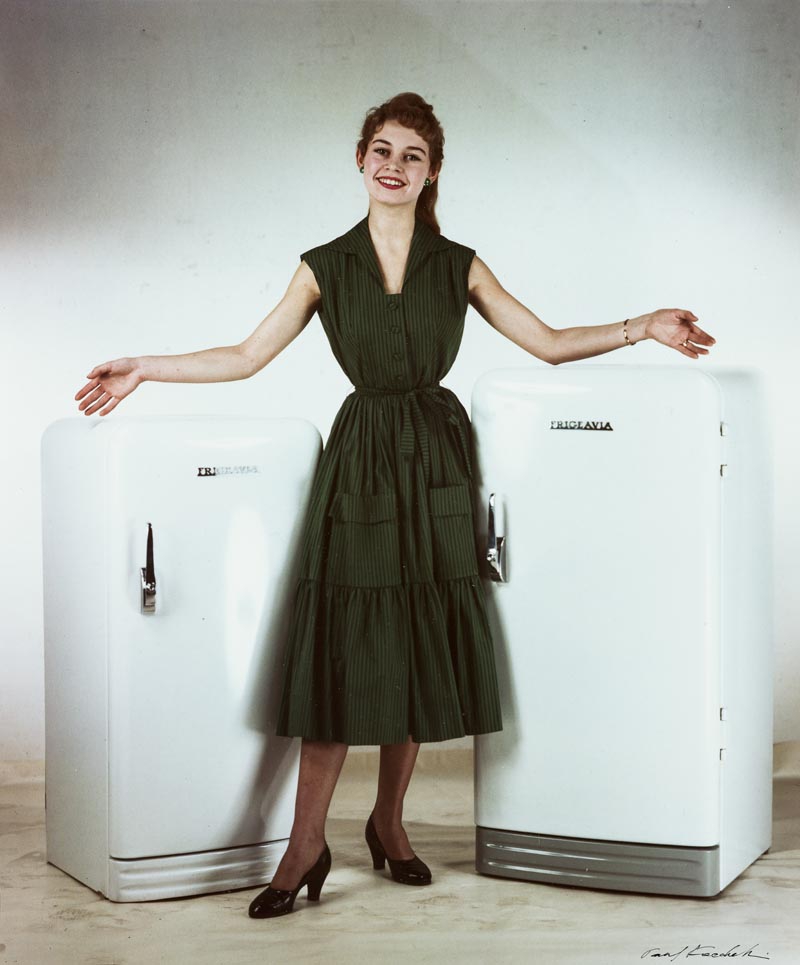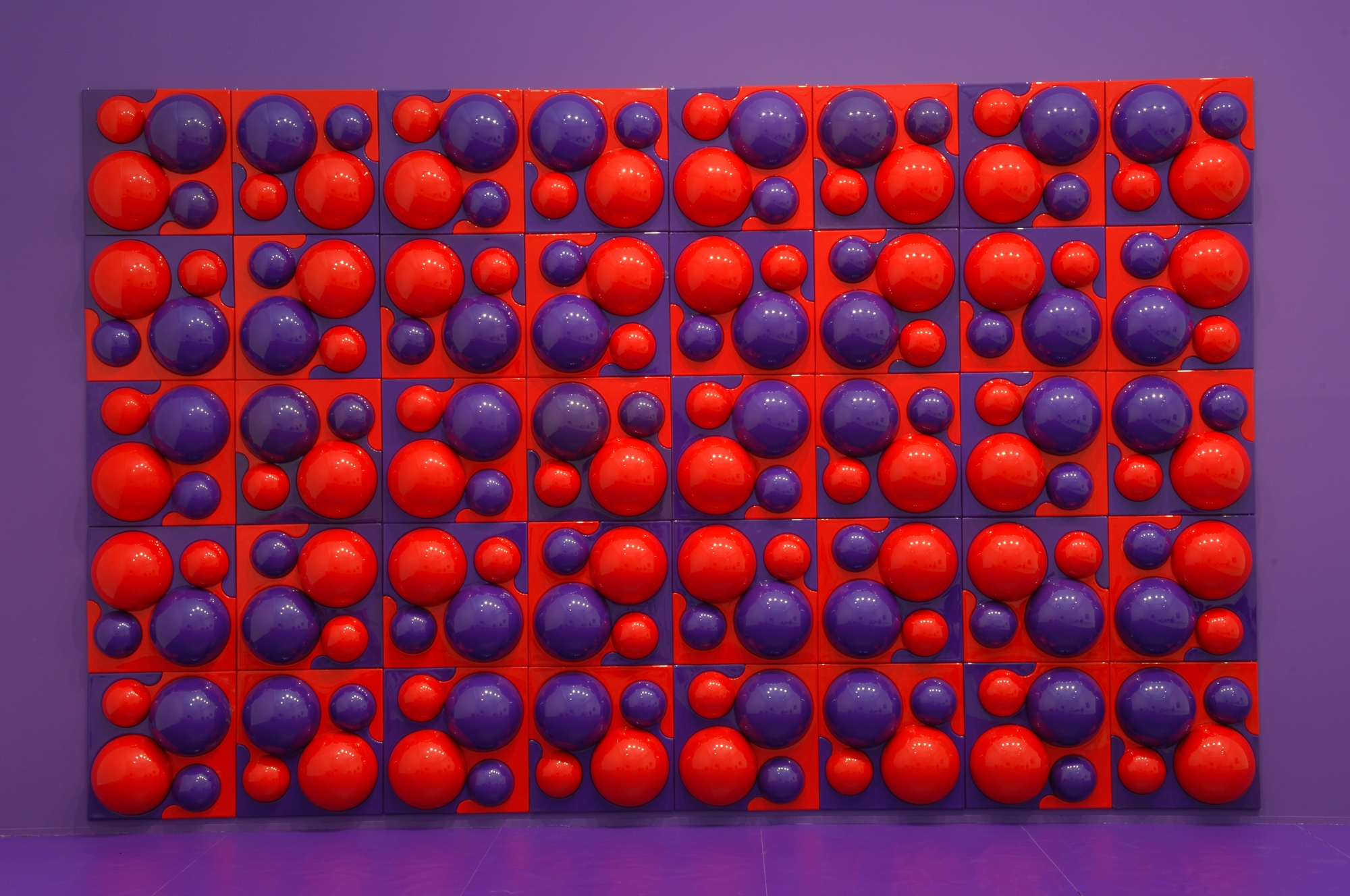 Paul Facchetti, Brigitte Bardot, 1948, photographie couleur cibachrome, 30,4 x 25,3 cm, collection MAMC.
Paul Facchetti, Brigitte Bardot, 1948, photographie couleur cibachrome, 30,4 x 25,3 cm, collection MAMC.Crédit photo : Yves Bresson / MAMC © ADAGP, Paris 2016
IN Exhibition
POPCORN - Art, Design et Cinéma
Postulating a filial relationship between cinema and design, two
disciplines bred by modernity, the exhibition focuses on four close-ups
that reveal the directions taken by designers in their relations with
the 7th Art. The exhibition includes works of art and design, objects
from the Museum's collections, films by designers, excerpts from
previously unseen films, installations, photographs. This exhibition
proposes an exploration of 4 highlights: "Cinéma - Usine", "Vers la
Lune", "Leçon de cinéma" and "Design d'art et d'essai".
Cinéma - Usine: At the end of the 19th century, magician-engineers with a love for all things mechanical were inventing viewing devices for a modern form of mass entertainment. The first public projection created a sensation; most worthy of note is the film La Sortie des Usines Lumière.
Vers la Lune: A freeze frame on Georges Meliès and A trip to the moon (1902), the first science fiction film in the history of cinema, shown at the Théâtre Robert-Houdin. The moon, a subject for scientific observation, is presented as a poetic space.
Leçon de cinéma: In several interviews, designer Roger Tallon dwells on the importance of cinema in his training. He talks about the emotion he felt when viewing the films of Alain Resnais, but he talks especially about westerns and American cinema. Charles Eames had just as strong a cinematographic education, considering director Billy Wilder as his master for his design work.
Design d'art et d'essai: this fascination with the 7th Art is at the heart of the work of these young designers. In a miniature cinema, films made by designers show the extent to which the language of cinema can be used to reactivate an apparently distant territory to stimulate creativity and refresh design.
www.mam-st-etienne.fr
Cinéma - Usine: At the end of the 19th century, magician-engineers with a love for all things mechanical were inventing viewing devices for a modern form of mass entertainment. The first public projection created a sensation; most worthy of note is the film La Sortie des Usines Lumière.
Vers la Lune: A freeze frame on Georges Meliès and A trip to the moon (1902), the first science fiction film in the history of cinema, shown at the Théâtre Robert-Houdin. The moon, a subject for scientific observation, is presented as a poetic space.
Leçon de cinéma: In several interviews, designer Roger Tallon dwells on the importance of cinema in his training. He talks about the emotion he felt when viewing the films of Alain Resnais, but he talks especially about westerns and American cinema. Charles Eames had just as strong a cinematographic education, considering director Billy Wilder as his master for his design work.
Design d'art et d'essai: this fascination with the 7th Art is at the heart of the work of these young designers. In a miniature cinema, films made by designers show the extent to which the language of cinema can be used to reactivate an apparently distant territory to stimulate creativity and refresh design.
www.mam-st-etienne.fr
 Paul Facchetti, Brigitte Bardot, 1948, photographie couleur cibachrome, 30,4 x 25,3 cm, collection MAMC.
Paul Facchetti, Brigitte Bardot, 1948, photographie couleur cibachrome, 30,4 x 25,3 cm, collection MAMC.Crédit photo : Yves Bresson / MAMC © ADAGP, Paris 2016
 Verner Panton, Panneau mural Visiona 2, 1969, cellidor rouge et violet,chaque panneau : 62 x 62 x 16 cm, collection MAMC. Crédit photo : Yves Bresson / MAMC © Marianne Panton
Verner Panton, Panneau mural Visiona 2, 1969, cellidor rouge et violet,chaque panneau : 62 x 62 x 16 cm, collection MAMC. Crédit photo : Yves Bresson / MAMC © Marianne Panton







